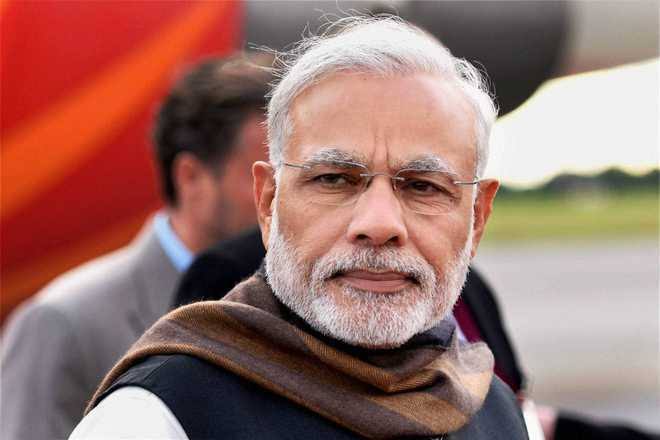About a year ago, Narendra Modi, then Gujarat chief minister, locked horns with Montek Singh Ahluwalia, deputy chairman of the Planning Commission, over the 'Gujarat model'. While finalising the state's annual plan outlay for 2013-2014 at Rs59,000 crore, Ahluwalia said the state's social sector needed “special attention” in order to match its economic performance. Modi vehemently contested the statement, saying Gujarat spent 42 per cent of its budget on the social sector.
Also, he asked for more flexibility in centrally sponsored schemes. Modi's spat with the Planning Commission, which was created by Jawaharlal Nehru 52 years ago, had been a long one. In several meetings he had questioned—often with Tamil Nadu Chief Minister J. Jayalalithaa and Madhya Pradesh Chief Minister Shivraj Singh Chouhan—the commission's habit of infringing on the rights of the states, impinging on the federal structure. This sour past has left people guessing about the future of the commission, and there has been no announcement on its new boss even a month after Modi became prime minister. Then came a report by the Independent Evaluation Office (IEO), headed by Ajay Chhibber, recommending that the body be replaced by a Reforms and Solutions Commission.
There had been calls for introspection and revamp of the Planning Commission in the past. When Manmohan Singh was devising the seventh five-year plan for 1985-1990 as its chief, Prime Minister Rajiv Gandhi publicly called the commission “a bunch of jokers”. C.G. Somiah, who was home secretary, dissuaded Singh from resigning. A half-hearted attempt to reform the body was initiated by K.C. Pant, when he served as its deputy chairman during the NDA regime between 1999 and 2004. In August 2009, Prime Minister Manmohan Singh espoused the need for reforms within the commission. Arun Maira, who joined the commission that year, was given the responsibility to formulate a roadmap.
“Institutions must always fit their context,” Maira told THE WEEK. When he suggested a roadmap in 2010, Singh said the Planning Commission should be a “systems reform commission, an essay in persuasion and not a budget-making body”. But there was not much movement except the outgoing commission leaving a note of possible future implementations. “It is unfortunate. He [Ahluwalia] was in charge. Unless the chief executive gets behind the reforms, nothing can happen. The staff did not see any seriousness in our initiatives,” said Maira.
So, what lies ahead for the commission? Chhibber's report has suggested “a bold and radical step” whereby other bodies would handle its functions “which are better designed to perform those functions”. State governments, which are better aware of problems and local issues, would have the freedom to identify priority areas in each state and implement reforms without interference from the Centre. “The attitude of the Planning Commission while consulting with the states was one of the biggest problems. The body, on several occasions, arm-twisted state governments,” said a government official.
The IEO has also suggested that the commission should be replaced by a think- tank. “This institution should be staffed with experts with domain knowledge and kept free from a ministerial administrative structure. It is also recommended that it should have full-time representation of major trade and industry organisations, civil society representatives and academics so as to capture their concerns and benefit from their expertise in formulating long-term strategy,” said the report.
If the Modi government implements the report, then the Finance Commission would make the budgetary allocation of centrally collected revenue to each state, while the finance ministry, through a new department of planning, would divide funds between various central ministries. “I wrote in 2007 that the Planning Commission does what it should not do and does not do what it must,” said Dr M. Govinda Rao, member of the 14th Finance Commission and former director of National Institute for Public Finance and Policy. “We have our terms of reference and we will go ahead with it. We are unconcerned about what happens to Planning Commission.”
The revamped Planning Commission—as Reform and Solutions Commission or by some other name—would identify problem areas and act as a solution-provider. It would be a knowledge base of successfully implemented programmes and ideas and would ideate on ways to bring about systems reform. The budget may have greater clarity on its new role.

